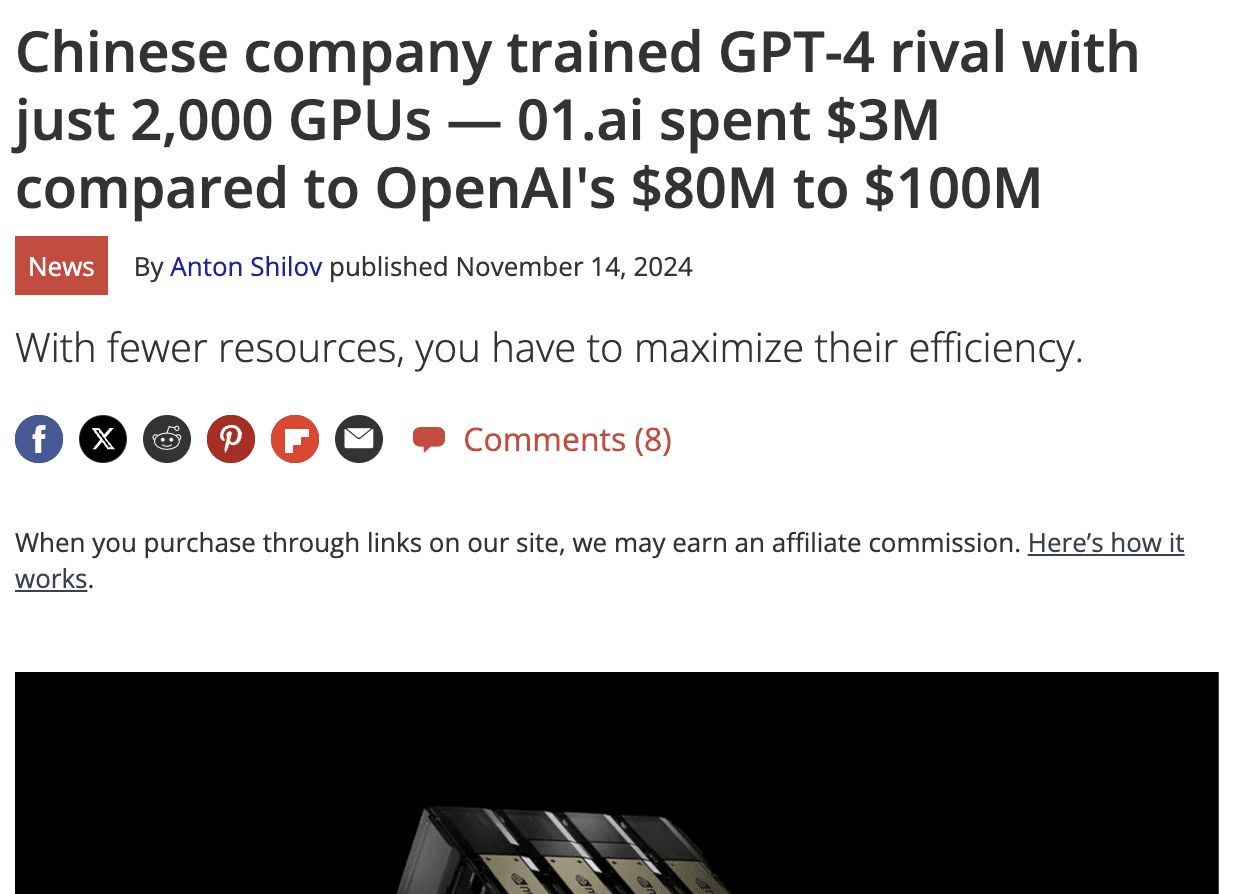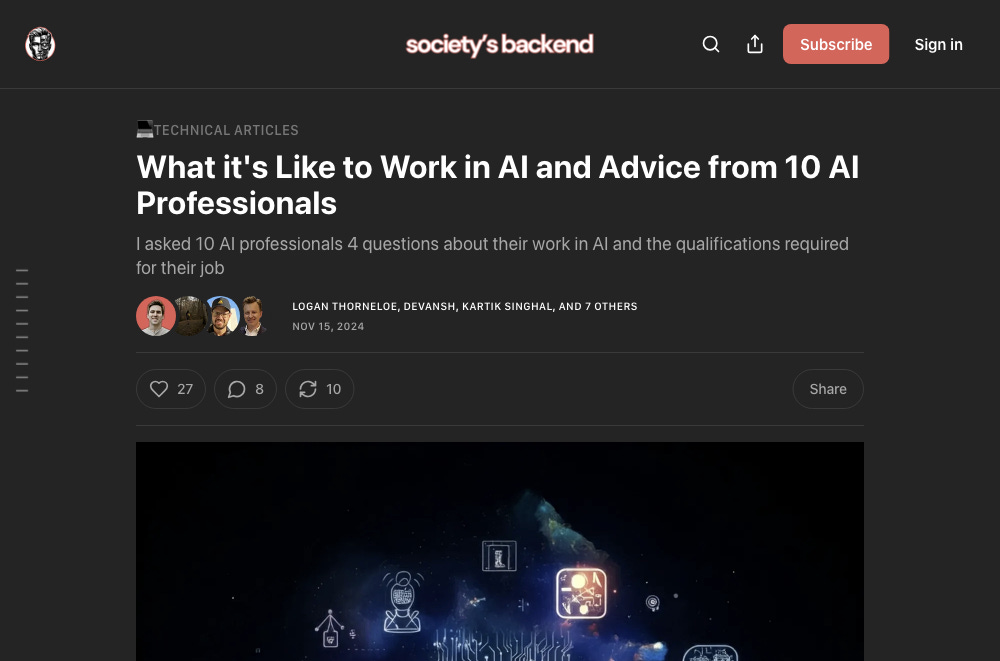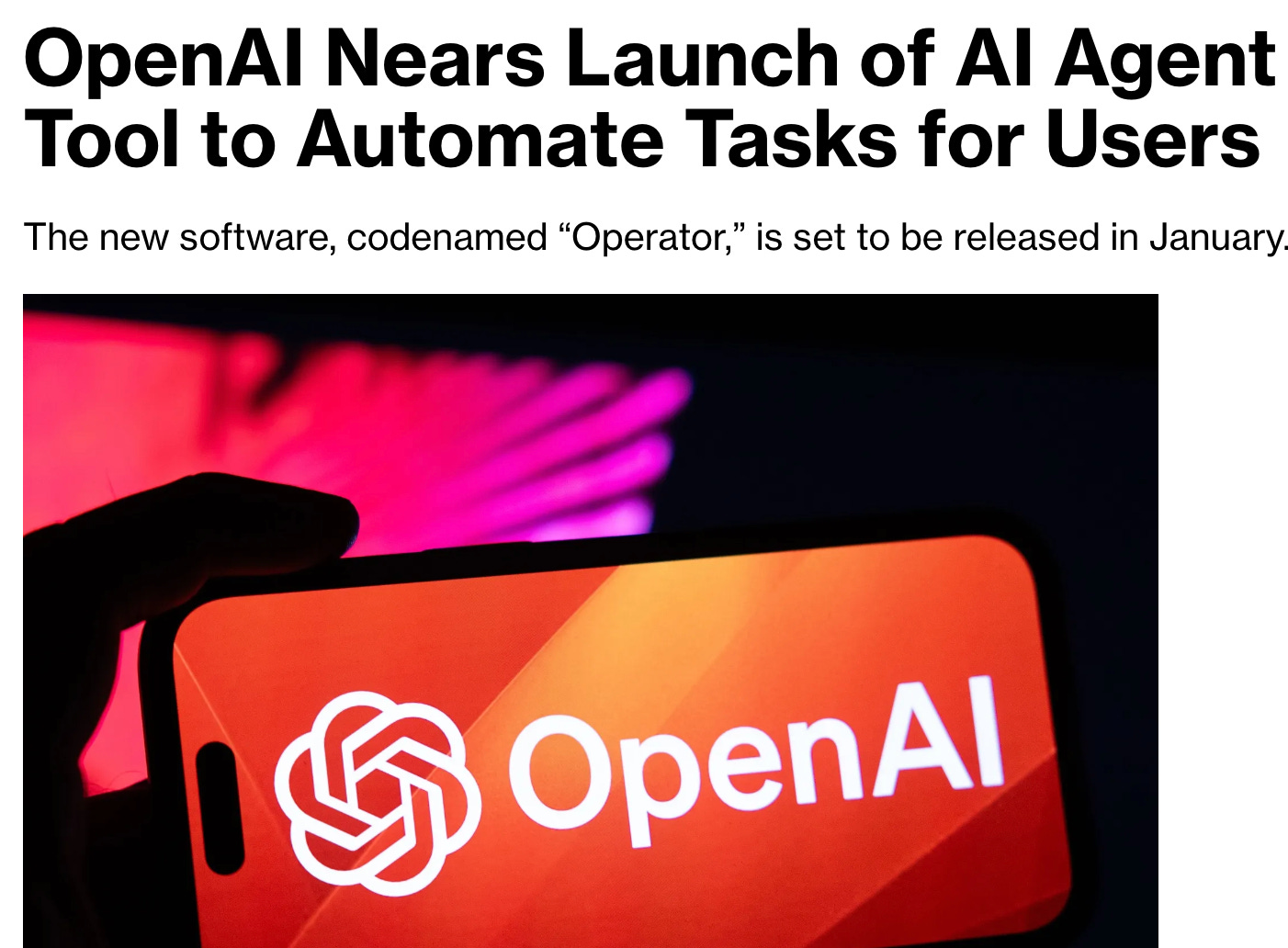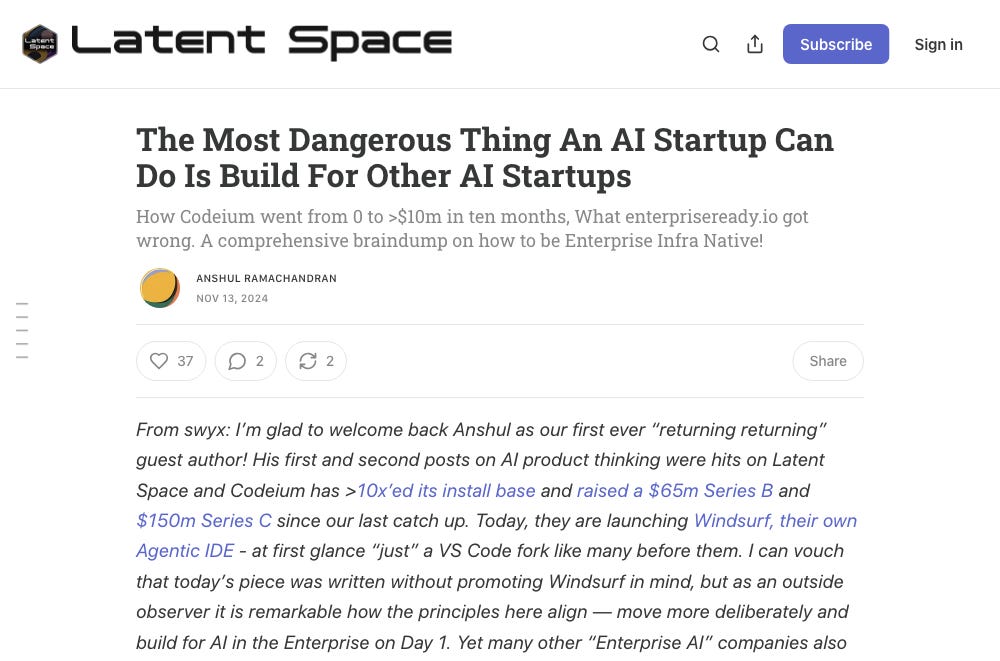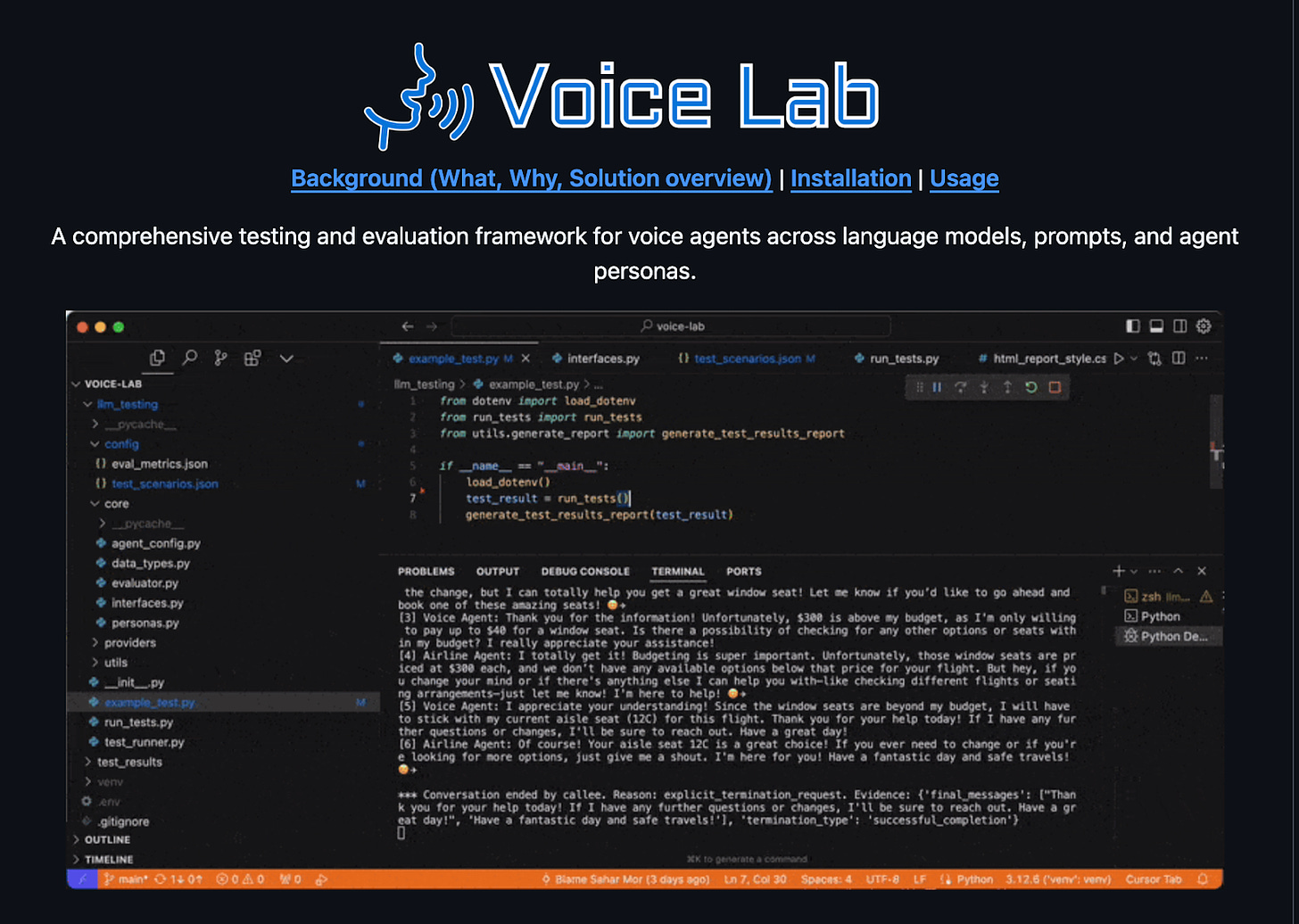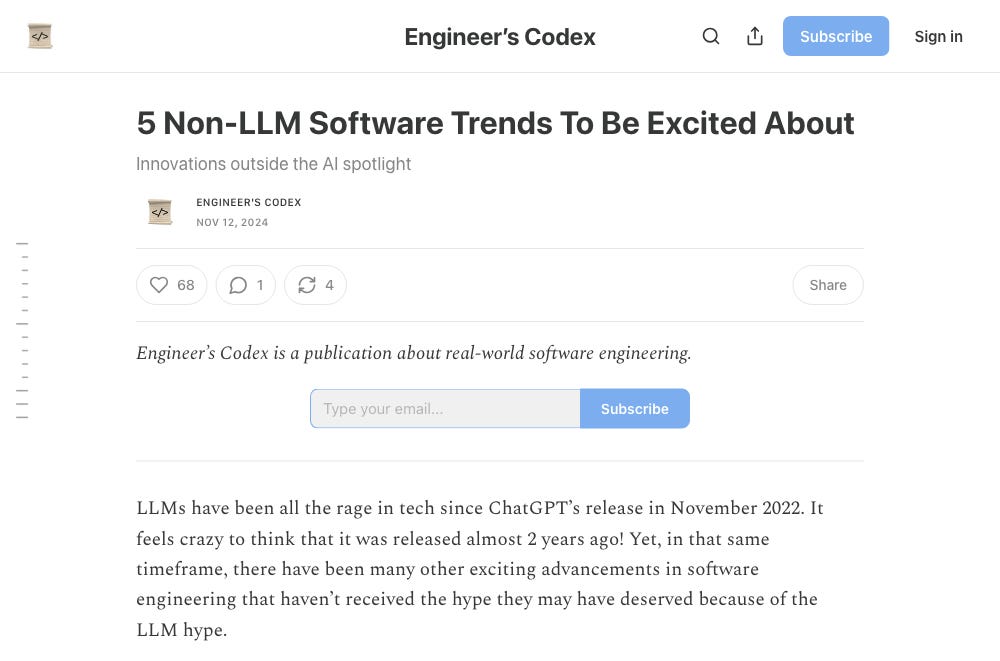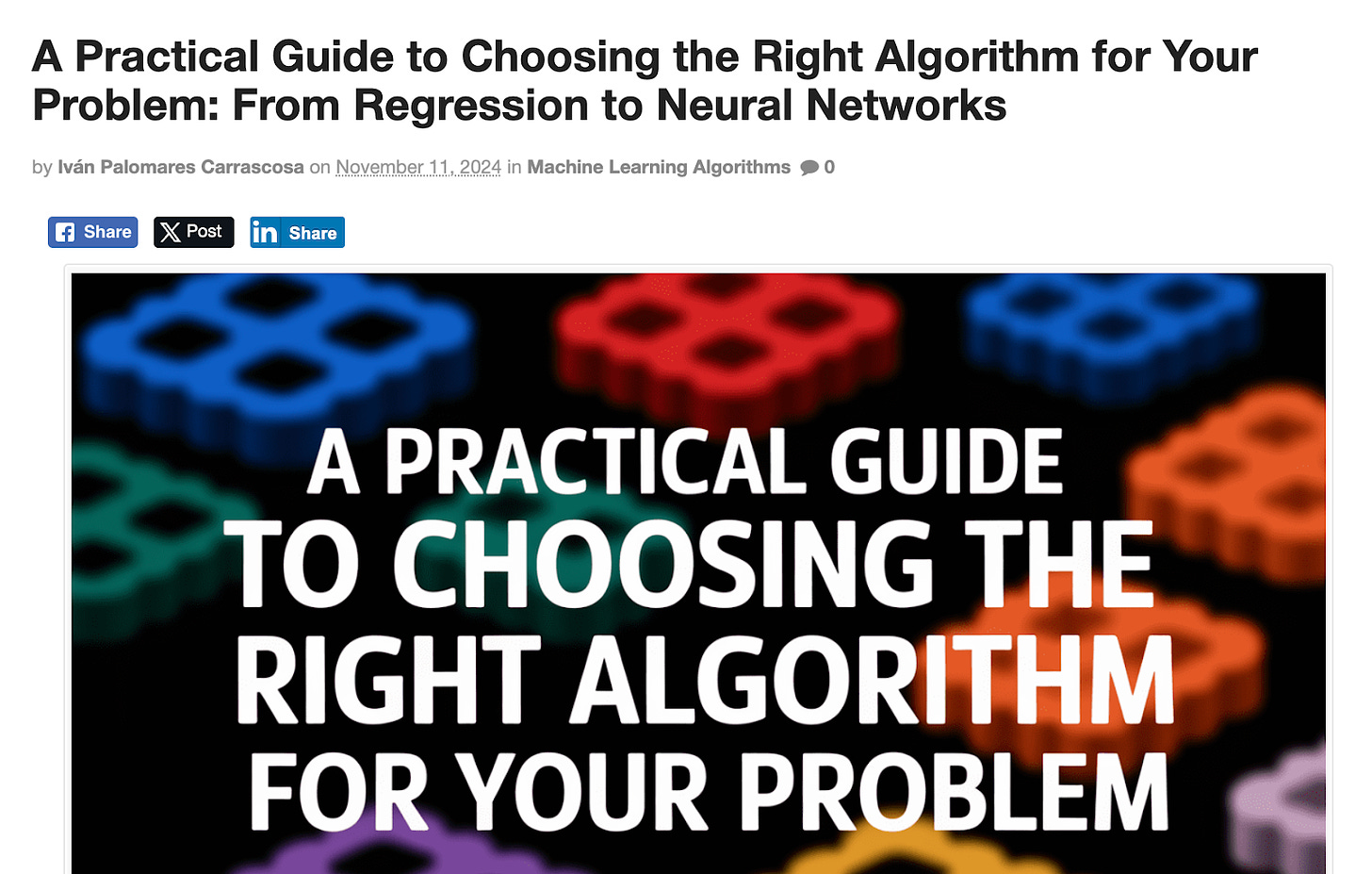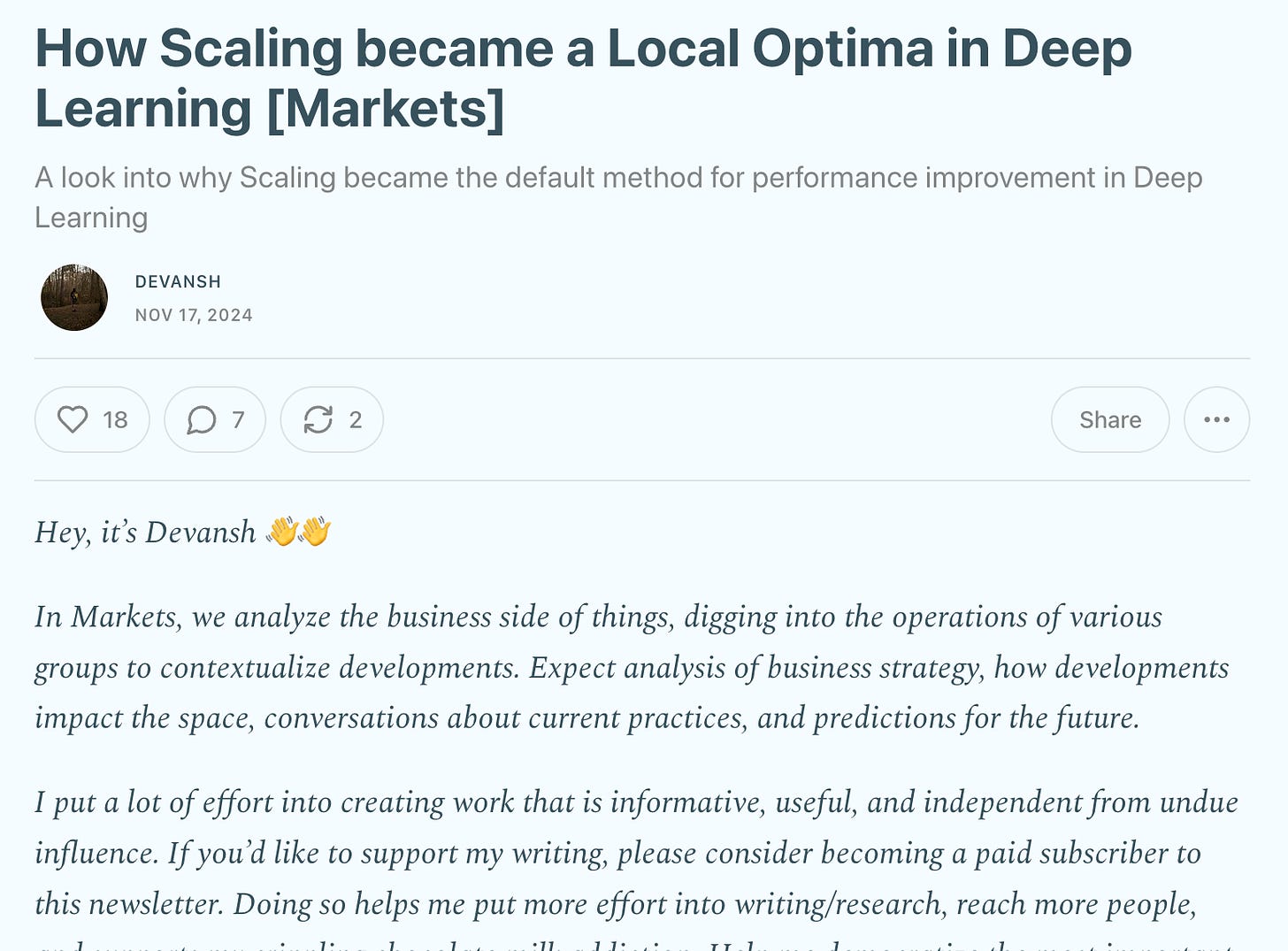Chinese AI is Less Expensive, What it's Like to Work in AI, an Evaluation Framework for Voice Agents, and More
Society's Backend Reading List 11-18-2024
Here's a comprehensive AI reading list from this past week. Thanks to all the incredible authors for creating these helpful articles and learning resources.
I put one of these together each week. If reading about AI updates and topics is something you enjoy, make sure to subscribe.
Society's Backend is reader supported. You can support my work (these reading lists and standalone articles) for 80% off for the first year (just $1/mo). You'll also get the extended reading list each week.
A huge thanks to all supporters.
What Happened Last Week
Here are some resources to learn more about what happened in AI last week and why those happenings are important:
AI Roundup by
(as per usual!)Content Recommendations in AI and Tech by
: I highly recommend his recommendation and “interesting things” reading lists. Devansh reads a ton and is great about sharing the articles he learns from.The Batch’s weekly newsletter by Andrew Ng: My personal favorite resource for weekly machine learning updates with emphasis on why those updates are important.
- : Important information on the US election outcome, DeepMind open-sourcing AlphaFold 3, and more.
Last Week's Reading List
Reading List
Chinese company trained GPT-4 rival with just 2,000 GPUs — 01.ai spent $3M compared to OpenAI's $80M to $100M
A Chinese company called 01.ai trained its advanced AI model with just 2,000 GPUs and spent only $3 million, while OpenAI spent $80 to $100 million on GPT-4. This achievement highlights that careful engineering can lead to high performance without large budgets. Due to U.S. export restrictions, Chinese companies face challenges in accessing advanced GPUs and have fewer resources compared to American firms.
What it's Like to Work in AI and Advice from 10 AI Professionals
The article discusses how to get involved in AI by sharing insights from ten AI professionals about their roles and daily work. They emphasize that there are many different paths in AI and a high demand for skilled individuals in the field. Key advice includes continuous learning, finding mentorship, and gaining practical experience.
OpenAI Nears Launch of AI Agent Tool to Automate Tasks for Users
OpenAI is set to launch a new AI tool called "Operator" in January, which will automate tasks like writing code and booking travel for users. This move is part of a trend among tech companies to develop AI agents that can handle multi-step tasks with little supervision. The launch comes as OpenAI and its competitors seek new breakthroughs in AI technology.
The Most Dangerous Thing An AI Startup Can Do Is Build For Other AI Startups
By
Building AI products for other AI startups can be risky and often leads to soulless, similar offerings in a crowded market. Companies need to understand enterprise-specific challenges and create solutions that truly meet those unique needs to succeed. Focusing on non-tech enterprises is crucial, as they have the budget and demand for tailored software solutions.
saharmor/voice-lab: Testing and evaluation framework for voice agents
By
Voice Lab is a testing and evaluation framework for voice agents that helps optimize performance and costs. It allows users to define custom metrics, switch between language models, and systematically test prompts. The framework is designed to improve the development and maintenance of LLM-powered agents with data-driven insights.
5 Non-LLM Software Trends To Be Excited About
By
The article discusses exciting software trends beyond large language models (LLMs), including local-first software, WebAssembly, and automated reasoning. Local-first software enhances user experience by prioritizing data storage on devices, while WebAssembly enables faster, more efficient web applications. Automated reasoning improves software reliability by verifying systems across all scenarios, leading to better performance and fewer bugs.
Dario Amodei: Anthropic CEO on Claude, AGI & the Future of AI & Humanity | Lex Fridman Podcast
Dario Amodei, the CEO of Anthropic, discusses the development of AI and its future impact on humanity in a conversation with Lex Fridman. They explore the concept of Artificial General Intelligence (AGI) and its potential consequences. The podcast highlights the importance of aligning AI technology with human values.
A Practical Guide to Choosing the Right Algorithm for Your Problem: From Regression to Neural Networks
The article provides a step-by-step guide for selecting the appropriate machine learning algorithm based on specific problems and data types. It includes key questions to consider, such as the nature of the problem, the data available, and the desired level of interpretability. Additionally, it offers examples of real-world use cases with recommended algorithms for various tasks.
The Ethics of AI Assistants with Iason Gabriel
Iason Gabriel discusses the ethical implications of AI assistants. He explores how these technologies can impact society and human behavior. The conversation emphasizes the need for responsible development and use of AI.
How Scaling became a Local Optima in Deep Learning [Markets]
By
Scaling is a popular approach in AI research because it aligns well with corporate goals, making it safer and easier for researchers to achieve results. This method simplifies processes, making it easier for companies to hire and standardize, while also appealing to funding sources. However, this reliance on scaling may hinder innovative solutions and maintain a cycle that favors quantity over quality in research.
Shape, Symmetries, and Structure: The Changing Role of Mathematics in Machine Learning Research
Keep reading with a 7-day free trial
Subscribe to Society's Backend: Machine Learning for Software Engineers to keep reading this post and get 7 days of free access to the full post archives.





